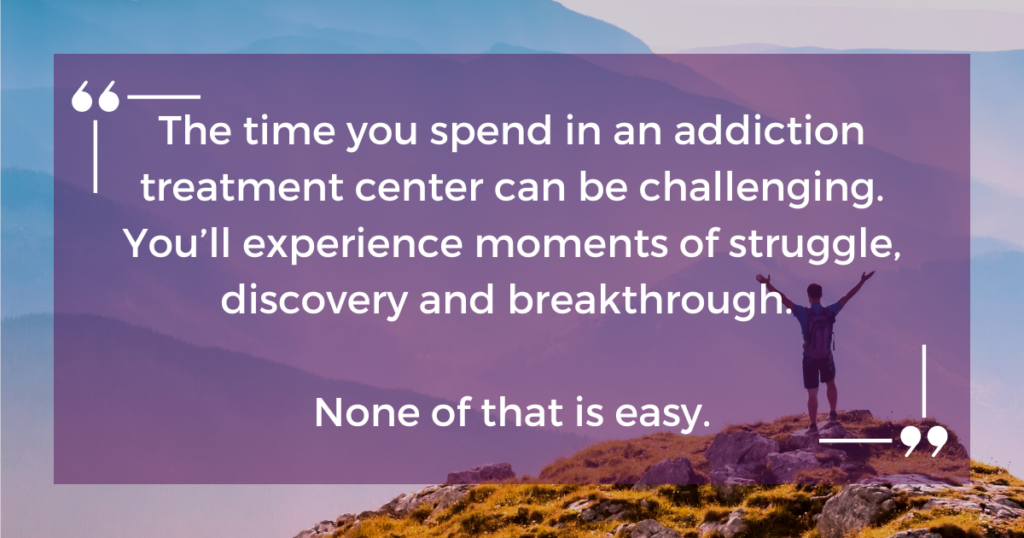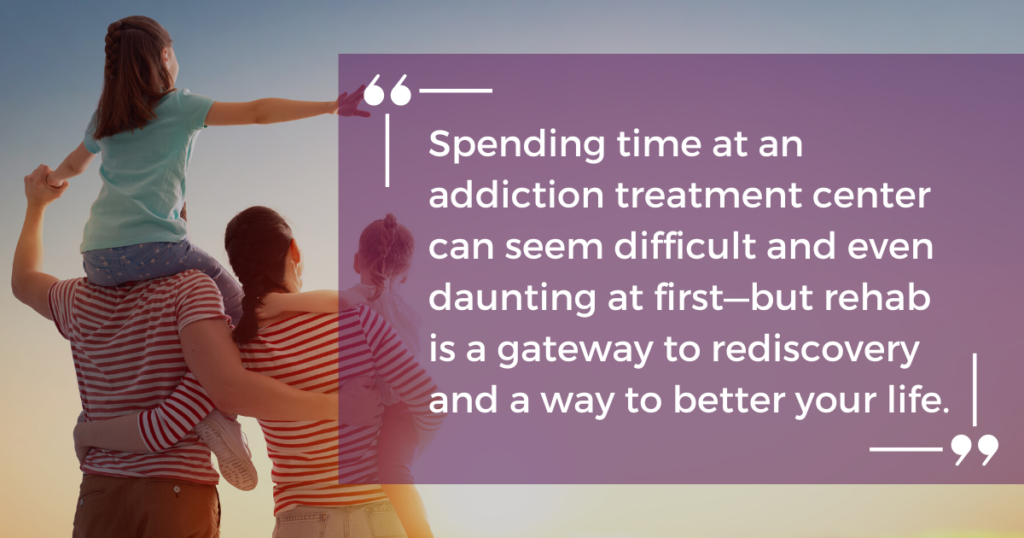The worst things about rehab really aren’t that bad when you consider the alternative, which is continuing to live with an untreated drug or alcohol addiction. Going to rehab is a deeply personal event, and not always a pleasant one. Most people don’t come to an addiction treatment center because they want to be there. They go to rehab because they have to. Starting a recovery is not typically a fun experience. Spending time at an addiction treatment center can seem difficult and even daunting at first. But rehab is a gateway to rediscovery, and a way to better your life.
What Are the Worst Things About Rehab in Addiction Treatment?
The time you spend in an addiction treatment center can be challenging. You’ll experience moments of struggle, discovery and breakthrough. None of that is easy. One of the most important things to grasp before entering rehab is there are reasons things are the way they are. Addiction treatment is a tested and proven pathway to recovery. We put together five aspects of recovery that may seem bad, but ultimately benefit you in the long run.

1. Isolation
Being in a rehab center can feel isolating. Guess what? It’s supposed to. That’s the point of going to an addiction treatment center. You’ll be able to focus on getting better, without distractions of everyday life. You’ll be away from home; you’ll be away from your job; and you’ll be away from family and friends. You’ll have time to contemplate the nature of addiction and how you can move forward once you achieve your goal of recovery. Your days will be highly structured, with a mix of therapy, counseling and group sessions where you explore your addiction, triggers and ways to manage your emotions.
2. Staff Searching Your Stuff
Many people cringe at the idea of having someone search through their belongings. But it’s a necessary step when entering an addiction treatment center. Staff must ensure someone isn’t sneaking in drugs, or worse weapons. Allowing only certain items in rehab is important to the health and safety of all patients. Clinicians and medical staff make sure that no distractions keep you from achieving success while in rehab. Many rehab centers don’t allow use of electronic devices, including phones. This is to make sure you’re focused on recovery, and not being influenced by someone from outside. Most treatment facilities will allow you to use your phone under the supervision of a therapist.
3. Going Through Withdrawal
Withdrawal symptoms are tough to handle, but many addiction treatment centers offer medication assisted therapy (MAT). Detox, or withdrawal management, is typically offered to people with alcohol or opioid addictions. Even if you don’t require treatment for physical withdrawal symptoms you’ll likely experience psychological withdrawal. It’s all part of the process of ending substance use, and staff will help you get through it.

4. Food Choices
The lack of food choices in rehab can be irritating to someone starting out, especially if it seems like merely cafeteria food day-in and day-out. But this is only temporary, and the food is specifically chosen to maximize nutritional value during the stay. Nutrition is valuable when in recovery, since the lack of or surplus in particular macronutrients can affect things like mood, physical fitness, and your body’s ability to heal after a period of non-medical substance use.
5. Leaving Rehab
Returning to the outside world after completing inpatient rehab can be difficult. Perhaps you made friends along the way that you’re bummed about leaving. You might be worried about how you’ll react when faced with eventual peer pressure to use substances. You may have actually enjoyed the time you spent reflecting on your life, your goals and the person you’ve realized you want to be. Many people who complete residential addiction treatment end up not wanting to leave.
But, like every bird and butterfly, there’s a time to spread your wings and fly. A successful stint in rehab should have you prepared for the challenges you’ll face. Alumni programs and recovery coaching provide you with additional support. There are many support groups out there to find other people in recovery to connect with. You don’t have to be alone for the next part of your recovery journey! Most rehab centers will help you through the next steps.
What Do Those in Recovery Have to Say?
Glenn Suggs and Amy Rogers, who are both in long-term recovery from addiction, host the new Sober Facts Podcast, and openly share their experiences in rehab and beyond. For Suggs, being in recovery meant time away from his children. “The uncertainty was tough—I also didn’t know what my life would be like once I left,” he said.
“Isolation was definitely one aspect that I didn’t like,” Rogers said. “You have no access to calls for the first bit.”
Rogers also agreed with Suggs on the uncertainty. She understood that life might be even tougher than it was before in some ways. “Once I was finished, I knew life would be a huge uphill climb,” she said. “I also had to learn how to understand my own body again, too, especially after all that damage had been done to it.”
Learn More
To learn more about what Landmark Recovery offers, give our dedicated admissions specialists a call at 888-448-0302 today. We aim to have the most cutting-edge, evidence-based treatments available to everyone who walks through our doors. We’re on a mission to save a million lives in the next century and help those suffering get their lives back.

Choose Recovery Over Addiction
We're here 24/7 to help you get the care you need to live life on your terms, without drugs or alcohol. Talk to our recovery specialists today and learn about our integrated treatment programs.




